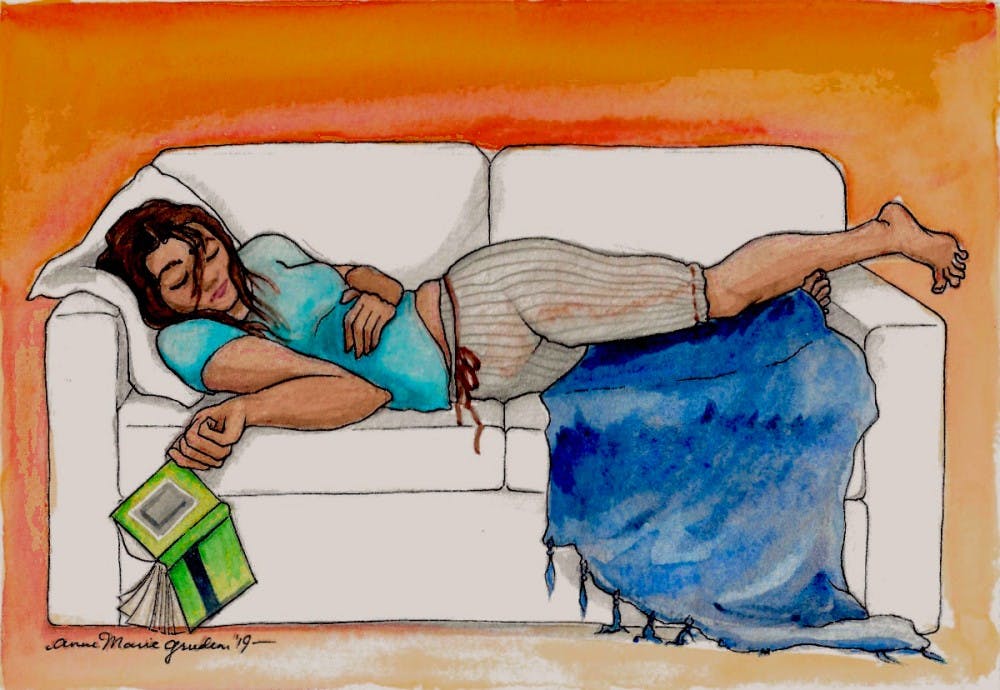Penn Professor Adrian Raine had no idea he went viral.
On Jan. 25, clickbait giant UberFacts posted an image of a guy passed out on a couch with the caption “Teens who need afternoon naps are more likely to become violent criminals later in life, according to researchers from the University of Pennsylvania.” The post has amassed more than 55,000 comments on Facebook, as well as thousands of likes and shares.
When I told Raine that this now viral post was the reason I came to interview him–and not just his expertise on healthy sleeping habits as per usual–he was delighted, but somewhat confused. He replied with excitement and shock, asking me to send him a link to the post.
It’s obvious why the post caught so many people's attention. Personally, my friends know me as someone who needs quite a bit of sleep, which often leads me to taking long afternoon naps. I must’ve been tagged in the post about seven times. Not willing to accept that something as great as napping could lead to something negative, I became determined to find answers. And thankfully, the answers were as close as the McNeil Building's fifth floor.
Raine's work has mostly centered on the causes of antisocial and violent behavior in children and adults. The specific study in question is the first longitudinal study of its kind, and tracks a group of English boys in secondary schools over 14 years.
In the study, Raine and his partner Peter Venables asked the 15–year–old boys to rate their sleepiness on a scale from one to seven, among other tests. After 14 years, the same boys were searched to see if they had a criminal records. The results found a strong association with adolescent sleepiness and adult violent crime.
Raine says, “The study is trying to show a number of different things–one is what causes crime. Nobody's ever really looked at sleep. You know it's totally ignored but it's a factor. We were finding teenage kids who are sleepy at age 15, they're more likely to become criminal offenders.”
However, these findings are obviously a far cry from the clickbait-y language used in the viral post. The problem is not that teens are taking naps, but that they simply need more sleep than they're getting. And a lack of sleep is no joke. According to Raine, it can lead to a degeneration of brain function, which in turn can lead to more antisocial behaviors. “If we could get more sleep for the one third of teenagers who are not getting enough, my prediction is that's going to cut crime,” Raine states.
Even though the specific study may not be applicable to college–aged nappers, Raine emphasizes that the results are relevant to all–the benefits of sleep are endless.
“I think there's lots of reasons why...our student body should care about sleep, not just the fact that it makes you better tempered. Would undergraduates here be interested in better memory? Yeah. Would they be interested in the fact that more sleep reduces depression and anxiety? Yeah.”
Raine thinks the best thing a student can do is establish a healthy bedtime routine. This can include avoiding large meals before bedtime, exercising daily, and trying to turn off electronics. As for napping, the long naps students tend to take can actually impair a sleep schedule. The professor suggests shorter “power naps” before 3 p.m..
“I think one of the problems is everyone recognizes, 'I need more sleep,' but not really doing anything about it," he deadpanned. "This is really something that we need to pay more attention to.”
Going to bed a little bit earlier certainly isn't going to put an end to all crime, but it’s certainly a good place to start.







